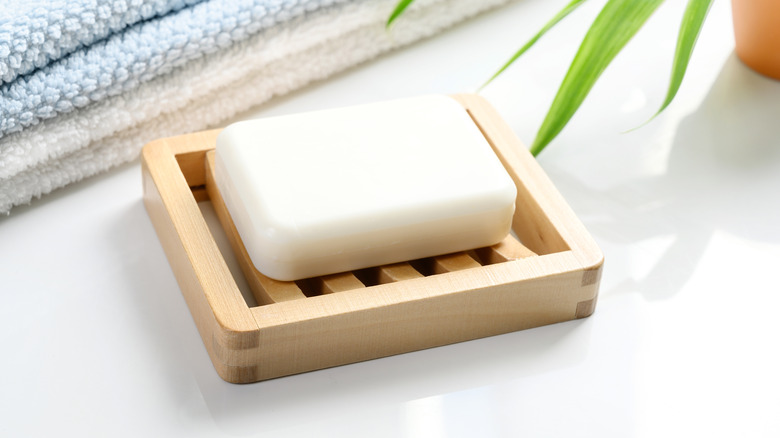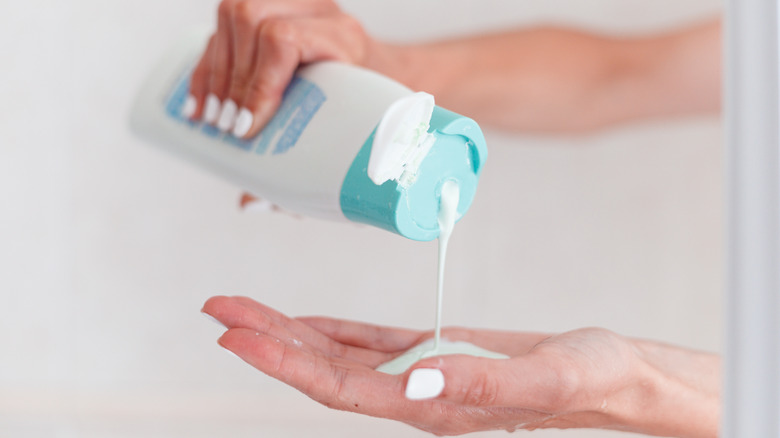Why You Should Never Share A Bar Of Soap
Most of the time when we're in the shower, whether we're at home or visiting a friend or relative, we reach for the soap without even thinking about it. After all, it's just soap, right? By definition, it should be clean. However, the Centers for Disease Control and Prevention (CDC) warns you to think twice before sudsing up with the communal soap bar.
Sharing a bar of soap can lead to the spread of methicillin-resistant Staphylococcus aureus or MRSA. This is a type of antibiotic-resistant staph infection that is usually spread by skin-to-skin contact (via the Mayo Clinic). In fact, football players who shared soap were more likely to develop MRSA infections than those who did not, according to a 2008 study published in Infection Control & Hospital Epidemiology. In case you do have an MRSA infection, Nova Scotia Health recommends that you do not use bar soap after being discharged from the hospital. Instead, you should use liquid soap to avoid spreading infection. Unfortunately, the reasons for not sharing your bar of soap don't end there.
Your soap is dirtier than you think
The idea that a bar of soap is inherently clean is a fallacy, as evidenced by a 2006 study in the Indian Journal of Dental Research. The study examined soap bars from 18 different dental clinics, and of the 32 samples that were studied, 100% were found to contain microbial contamination. The soaps that were more heavily used tended to have the largest concentration of microbes. Similarly, a 2015 study published in the American Journal of Infection Control examined the soaps in a 2,000-bed hospital in India. The study found that more than 60% of bar soaps were contaminated with microbes.
The best course of action when trying to wash and stay germ-free is to use liquid soap, according to the Minnesota Department of Health. Not only will it ensure that no germs make the leap from the soap to your hands, but most liquid soaps have moisturizing agents that keep your skin from drying out. Additionally, body washes can help to exfoliate your skin, according to Healthline. You can also consult your dermatologist to find the best product to keep your skin healthy, clean, and free of germs.


